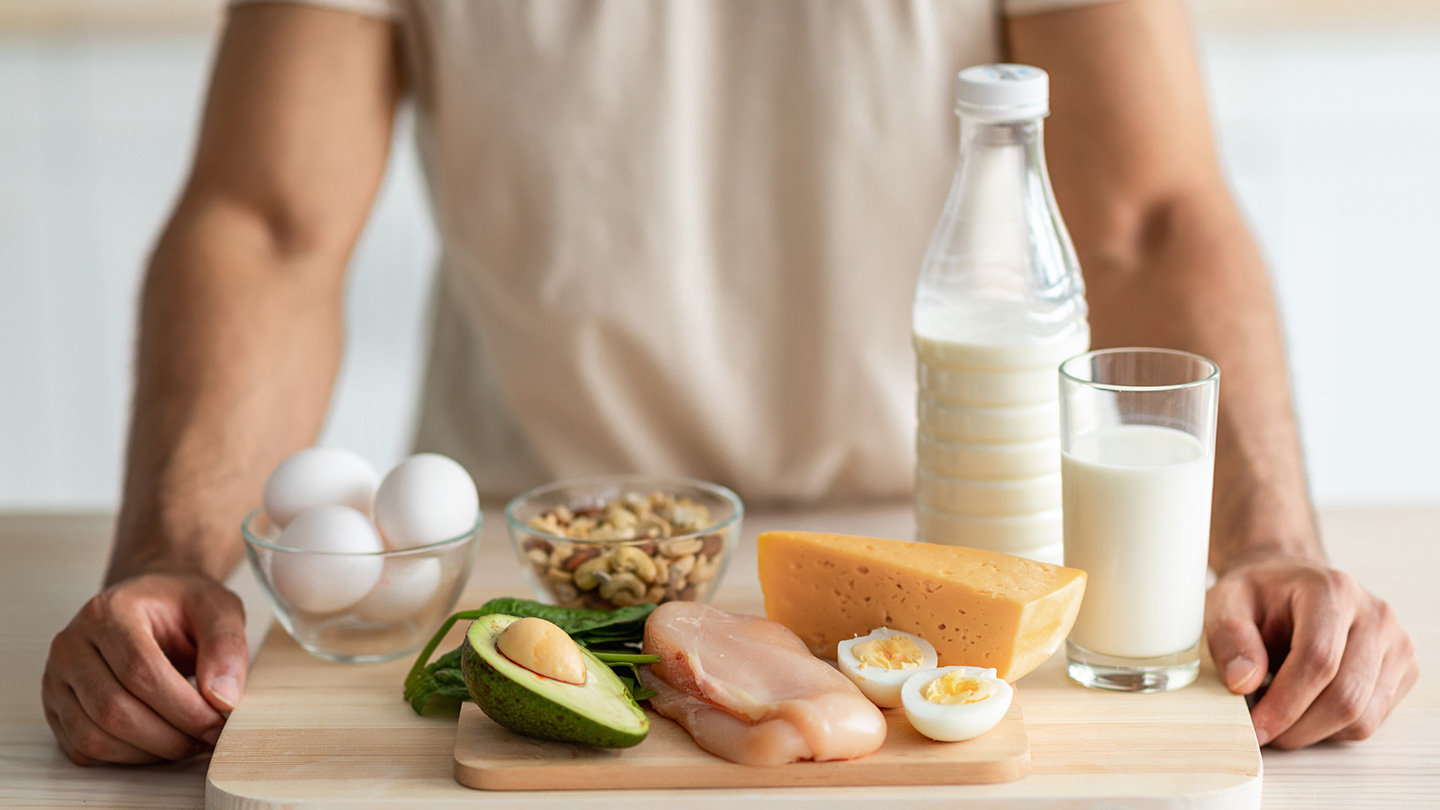Nutrition
A Nutritionist’s Guide to Foods That Nourish Your Brain and Mood
From turmeric lattes to chia puddings, these everyday choices, pack bioactives linked with calmer moods, better sleep, sharper focus and a happier gut–brain axis. Let’s dive into an expert’s favourite foods for enhanced mental health.
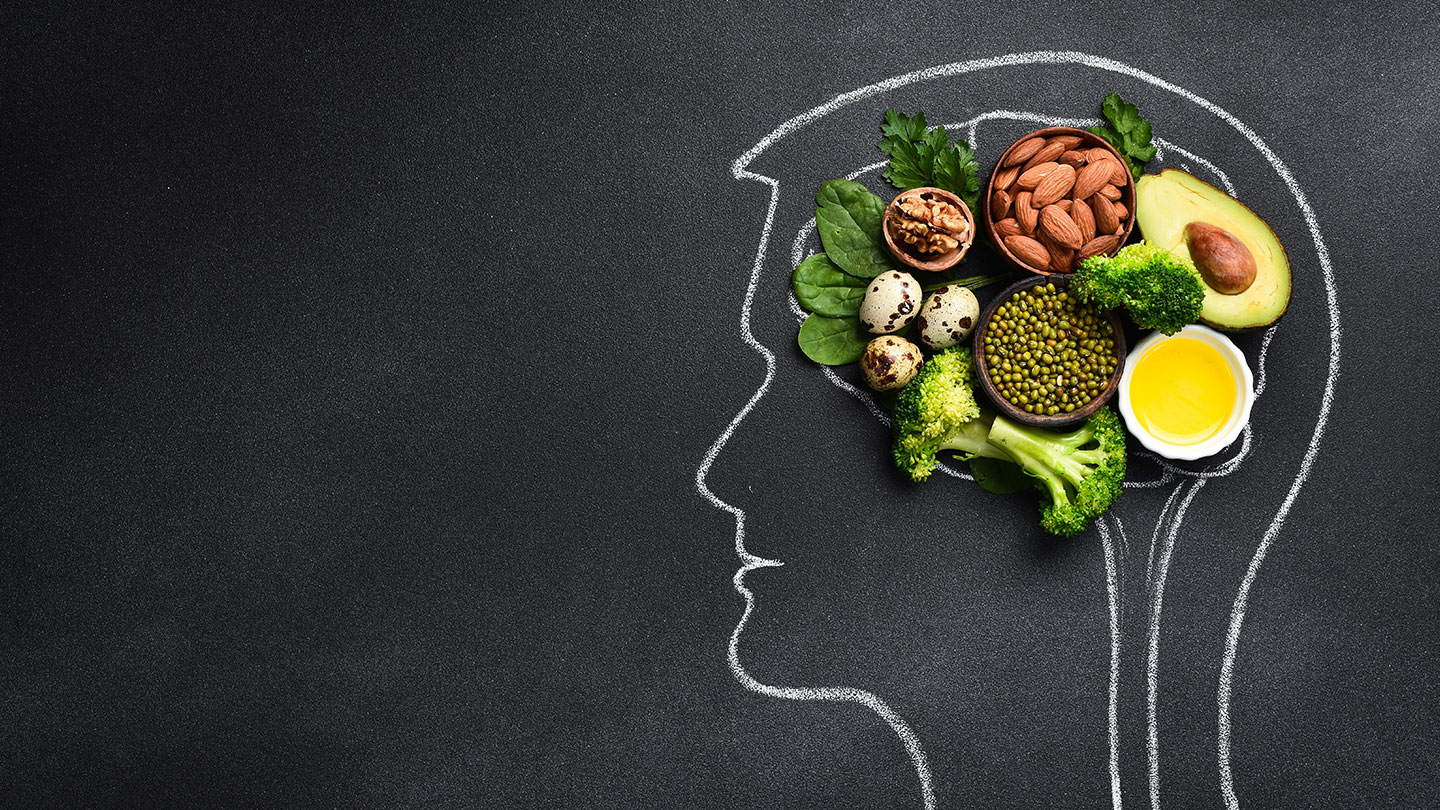
The connection between diet and mental health is stronger than ever, with research from global organizations like the American Psychiatric Association and Harvard T.H. Chan School of Public Health showing how nutrients influence mood, sleep, stress resilience, and even long-term risk of depression or anxiety.
We turned to Dr. Nikita Suresh, Ph.D in Nutrition, and Fit India Ambassador, who shared her favourite go-to foods for better mental well-being. From calming chamomile tea to nutrient-dense walnuts, here’s her go-to list of foods and the science behind how they support your brain and mood.
Related Story: 5 Healthy Snack Ideas That Improve Your Mood
1. Haldi Doodh / Turmeric Milk (Curcumin)
- Why it helps: Turmeric contains curcumin, a compound known for fighting inflammation and oxidative stress, two processes closely linked with depression and anxiety. A 2024 study titled, “Curcumin as a Multifunctional Spice Ingredient against Mental Disorders in Humans: Current Clinical Studies and Bioavailability Concerns” by the National Library of Medicine, USA; shows that curcumin promotes neurogenesis (growth of new brain cells) and improves stress response.
- How to use: Steep 1–2 chamomile tea bags (or dried flowers) in hot water for 5–7 minutes. Drink in the evening or before bed.
- Watch-outs: Very high doses can upset the stomach or interfere with certain medicines like blood thinners, so keep it moderate and food-based.
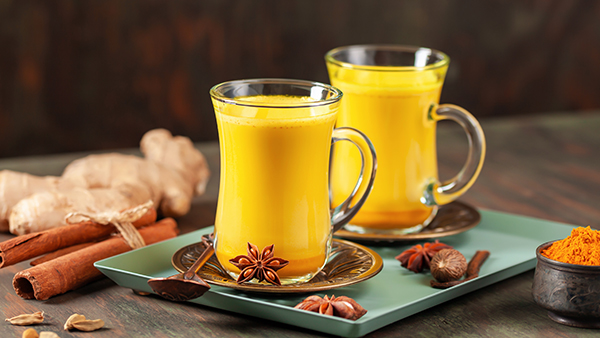
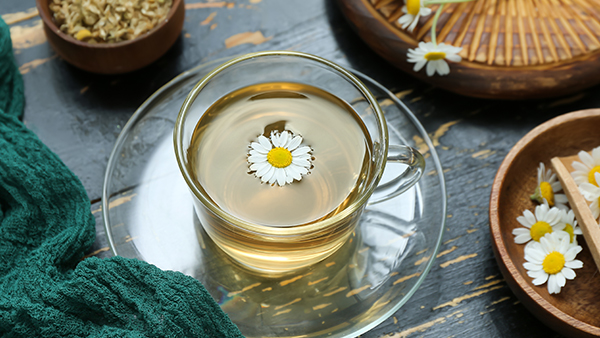
2. Chamomile Tea
- Why it helps: Chamomile has natural calming compounds that interact with brain receptors linked to relaxation. Chamomile tea or extracts can help reduce anxiety and improve sleep quality. It’s a gentle, caffeine-free option for winding down.
- How to use: Asanas like Baddha Konasana (Butterfly Pose) and Vajrasana aid digestion, ease pelvic stiffness, and calm the mind.
- Watch-outs: Avoid if you have ragweed allergies. It may also increase drowsiness if you’re already on sedatives.
Related Story: Your Guide To Tea For Every Mood
3. Dark Chocolate (and Hot Cacao)
- Why it helps: Dark chocolate (especially 70 per cent and above) is rich in cocoa flavanols, compounds that improve blood flow to the brain and may boost memory, focus, and mood. In a controlled trial, adults who consumed 30 g/day of 85 per cent dark chocolate for three weeks saw significantly more diverse gut bacteria, which corresponded with marked reductions in negative emotions. Additionally, cocoa flavanols fuel the growth of beneficial gut microbes such as Lactobacillus and Bifidobacterium and suppress harmful bacteria, while also displaying powerful antioxidant and anti-inflammatory effects.
- How to use: Enjoy 20–30 g of good-quality dark chocolate or a small cup of hot cacao on most days.
- Watch-outs: It still contains caffeine and theobromine, which can cause jitters in some people. Pick low-sugar options if possible.
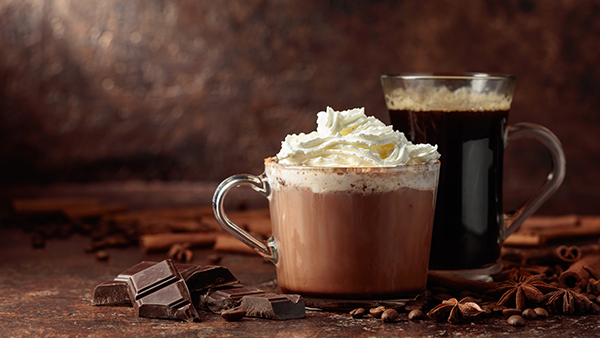
Related Story: Mood-Boosting Foods To Fade Your Monday Blues
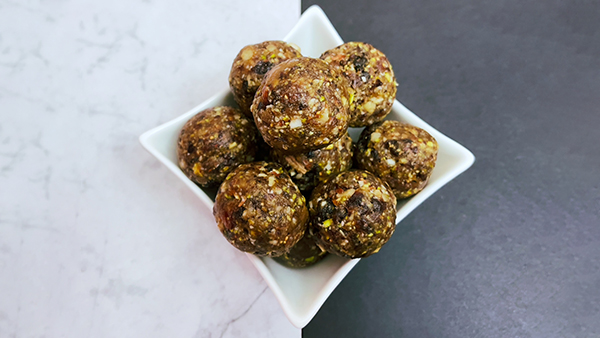
4. Walnuts (or Nut Laddoos)
- Why it helps: Walnuts are an excellent plant source of omega-3 fatty acids, which support brain cell structure and communication. They also contain antioxidants and vitamin E, all of which help protect the brain from stress and inflammation. They help bring calmness.
- How to use: Encourages natural alignment of the pelvis and eases delivery.
- Watch-outs: Do wall-supported squats to avoid pressure on the knees.
5. Matcha
- Why it helps Matcha is powdered green tea, rich in L-theanine (an amino acid) and antioxidants. L-theanine has been shown to reduce stress and improve focus, especially when combined with the gentle caffeine in tea. In a human randomized controlled trial, 200 mg/day of L-theanine taken for four weeks significantly reduced anxiety, improved mood, lowered depression scores, and enhanced sleep quality and cognitive function.
- How to use: Whisk ½ to 1 tsp of matcha into hot water or milk for a morning or mid-day drink.
- Watch-outs: It does contain caffeine, so avoid late in the evening. Choose good-quality brands to avoid contamination with heavy metals.
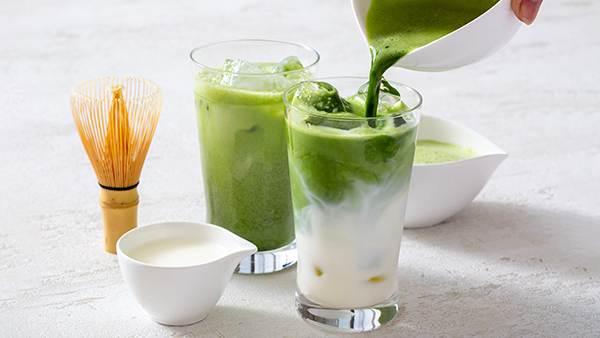
Related Story: Matcha—Is it Really Worth the Hype?
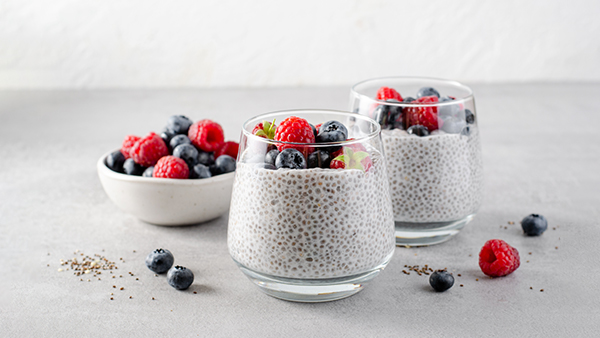
6. Chia Pudding
- Why it helps: Seeds are packed with ALA (alpha-linolenic acid). It is a plant-based omega-3 fatty acid. Omega-3s are linked to lower depression risk and better brain health. They also contain fibre, which supports gut health and is important for mood regulation through the gut–brain connection.
- How to use: Soak 2 tablespoons of chia seeds in milk or yoghurt overnight to make chia pudding. Top with fruit and nuts for a balanced snack.
- Watch-outs: Always soak chia well before eating—dry seeds can cause discomfort. Start with small amounts to avoid bloating.
7. Kombucha
- Why it helps: Kombucha is a fermented tea rich in probiotics and organic acids. These support gut health, and since gut bacteria play a role in producing mood-regulating chemicals like serotonin, kombucha may indirectly support mental well-being. It is also a refreshing option for gut support.
- How to use: Drink a small glass (about 100–120 ml) a few times a week.
- Watch-outs:Some kombucha contains trace alcohol and caffeine. Avoid unpasteurised home brews if you are pregnant, breastfeeding, or immunocompromised.
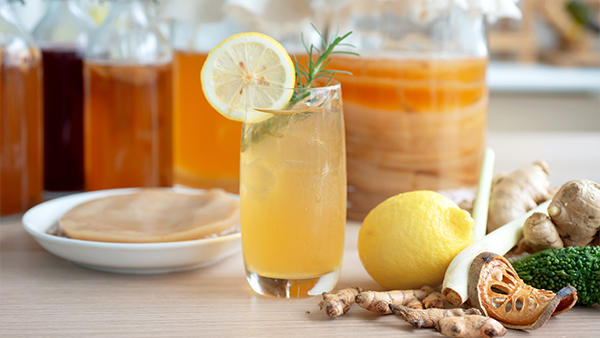
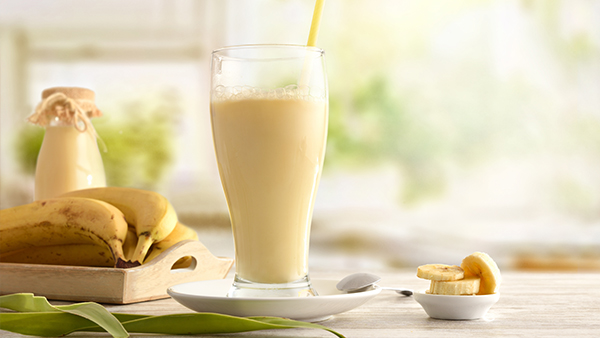
8. Banana Milkshake
- Why it helps: Bananas are rich in vitamin B6, which helps your body make serotonin, the “feel-good” brain chemical. They also provide tryptophan, an amino acid linked with better mood and sleep. Blending them into a milkshake makes a satisfying, serotonin-supporting snack.
- How to use: Blend 1 banana with milk or yoghurt. For extra benefits, add a spoon of oats and some nut butter.
- Watch-outs: Bananas are high in natural sugars—stick to one per serving if you’re watching blood sugar.
9. Avocado (Toast, Shake, or Guacamole)
- Why it helps: Avocados are rich in healthy fats, folate, magnesium, and lutein, nutrients linked to brain health and lower risk of mood disorders. Eating an avocado daily improved memory and focus in older adults, thanks in part to lutein, a compound that also supports eye and brain function.
- How to use: Spread half an avocado on whole-grain toast, or mash into guacamole. You can also pair it up with broccoli for a nutritious smoothie.
- Watch-outs: Avocados are calorie-dense; stick to half a fruit as a serving. Rarely, they may trigger latex-fruit allergies.
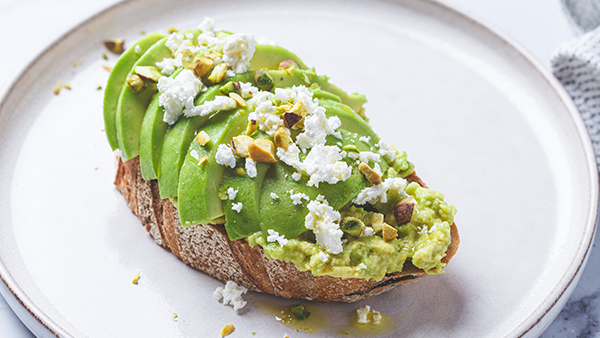
- Quick Planner: A Day of Mental-Health Friendly Foods
- Morning: Matcha latte with a walnut laddoo
- Afternoon: Chia pudding with fruit and seeds
- Evening: Chamomile tea or turmeric latte
- Treats: Dark chocolate square or hot cacao
- Add-ons: Avocado toast for breakfast; kombucha as an occasional drink; banana milkshake as a healthy drink after gymming.
These foods won’t replace medical care for anxiety, depression, or insomnia but they can support overall mental well-being when enjoyed regularly. Think of them as small, everyday rituals for a calmer mind, sharper focus, and a healthier gut–brain connection. Get instant access to personalised nutrition advice just for you. Sign up here.
Get instant access to personalised nutrition advice just for you. Sign up here.
EXPLORE MORE
Light, tangy, and packed with freshness, this simple yoghurt-based marinade transforms proteins, veggies, or even snacks into flavourful, guilt-free delights.
Low in calories yet rich in fibre, calcium, and probiotics, this easy-to-make recipe keeps you refreshed, energized, and light on your feet throughout the day.
From honey and cane sugar to sucralose and stevia, our craving for sweetness hasn’t changed, only the source. But how do natural and artificial sugar really stack up for health?
Most gym-goers in India stress on protein powders and skip out on real nutrition. Here’s a science-backed guide to getting it right, with practical tips by nutritionist Dr. Nikita Suresh.








.jpg)
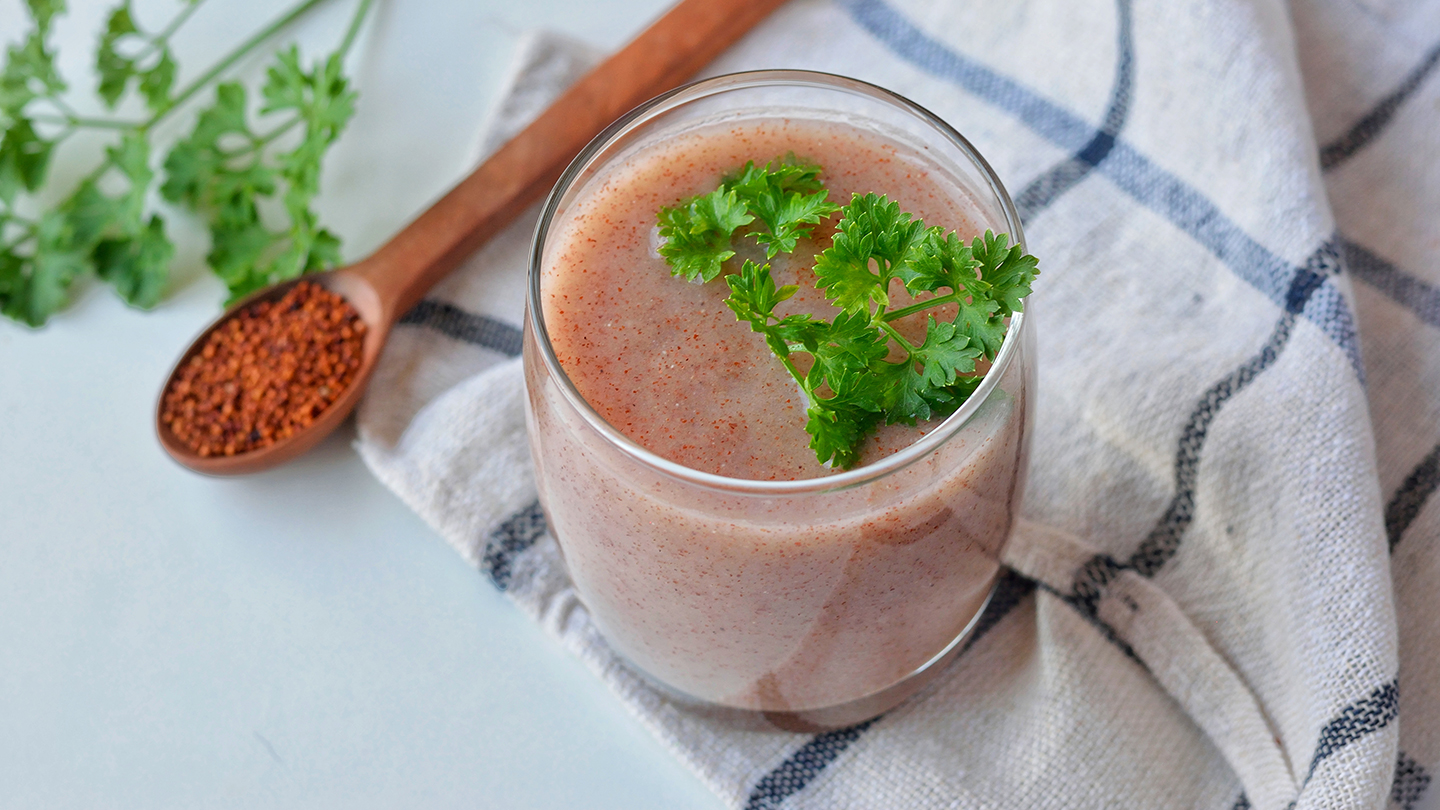
.jpg)
